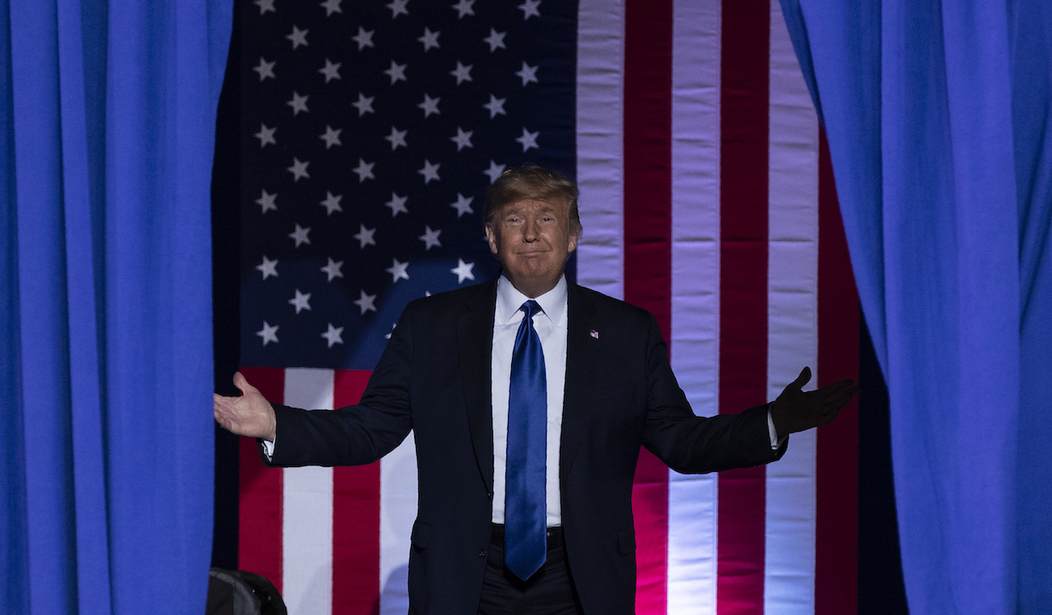Despite his short time in politics, President Trump has mastered the art of the stump speech. Beyond his trademark speaking style, he has proven adept at firing up his base by citing the most popular accomplishments of his administration. Among those garnering the loudest reactions are construction of the border wall, reforming the Veterans Administration and getting more worker-friendly trade deals. Big cheers all around.
Further down the list is the president’s growing number of appointments to the federal bench. It gets applause, but do people really understand what it means? While it lacks the red-meat sizzle of the border wall, Trump’s judicial appointments stand to be the most transformational accomplishment of his presidency, and one that will likely outlast anything else he does.
While the importance of the Supreme Court is well-known, it only agrees to hear about 100 of the more than 7,000 cases it is asked to hear each year. Those cases come from district courts and then the courts of appeal, or circuit courts.
At those levels, Trump is remaking the judiciary. Currently, one in four circuit court judges is now a Trump nominee. Since his presidency began barely three years ago, Trump has nominated and seen a whopping 187 of his federal judges confirmed by the Senate. Fifty of those appointments were to the circuit court. For comparison, former President Obama appointed 55 circuit judges over eight years.
The Ninth Circuit—which covers California, Arizona, Hawaii, Idaho, Montana, Nevada, Oregon, and part of Washington state—has long been notorious for its preponderance of left-leaning judges. It is the favorite circuit of well-funded, left-wing legal groups who go “forum shopping” for favorable rulings against Trump in cases regarding the border wall, refugees, sanctuary policies and many other issues.
Recommended
Thanks to Trump, the Ninth Circuit’s makeup is changing. Of the 29 active judges in the circuit, ten are now Trump appointees. The split of Ninth Circuit judges appointed by Democrat vs. Republican presidents is currently 16-13, respectively. If Trump wins a second term, the Ninth Circuit’s nickname among conservatives as “the Ninth Circus” may be a thing of the past.
While groups on the left will no doubt raise millions of dollars on the fear that Trump’s appointments herald the coming apocalypse, a more sober analysis is that the change will help restore order to the federal government.
For too long, the judiciary has been used by activists as an insurance policy against their side losing elections. The will of the people, via a duly elected executive, can be subverted by finding the right activist judge in the right court.
Such behavior has been on display in the lawsuits filed against the Trump administration regarding the travel ban, building the border wall, and numerous others. This gave anonymous, unelected lower court judges powers superseding those of the elected commander in chief on matters of national security. This is a perversion of our system of checks and balances among the three branches of government.
The firewall against this misuse of judicial authority has been the Supreme Court, which ultimately sided with the executive branch in most of these cases. However, progressive activists are also trying to tinker with the high court, advocating for FDR-style court-packing by expanding the number of Supreme Court justices.
These are not the acts of people who revere the Constitution, but of those who seek to change the rules of the game because the results are not matching their radical agenda. This should be treated as the threat to the republic that it is.
More originalists on the bench would serve to put the three branches of the federal government into their intended and proper lanes. The chief executive’s powers on matters of national security are clearly spelled out in the Constitution. If the opposition finds the president’s actions unsatisfactory, the remedy should be the ballot box, not forum shopping. For a political group to use the bench to achieve judicially what it cannot achieve electorally is de facto voter nullification, and that should be unacceptable along the entire political spectrum.
In a time when it seems the pillars of our society are wobbling, the judiciary matters more than ever. It is an essential arbiter of our country’s most perplexing issues, and functions best when a majority of its judges do not tilt to one ideological extreme. Trump’s appointments should bring more balance to the bench, and that is good for America, its people and its government.
Dale L. Wilcox is executive director and general counsel at the Immigration Reform Law Institute, a public interest law firm working to defend the rights and interests of the American people from the negative effects of illegal migration.

























Join the conversation as a VIP Member